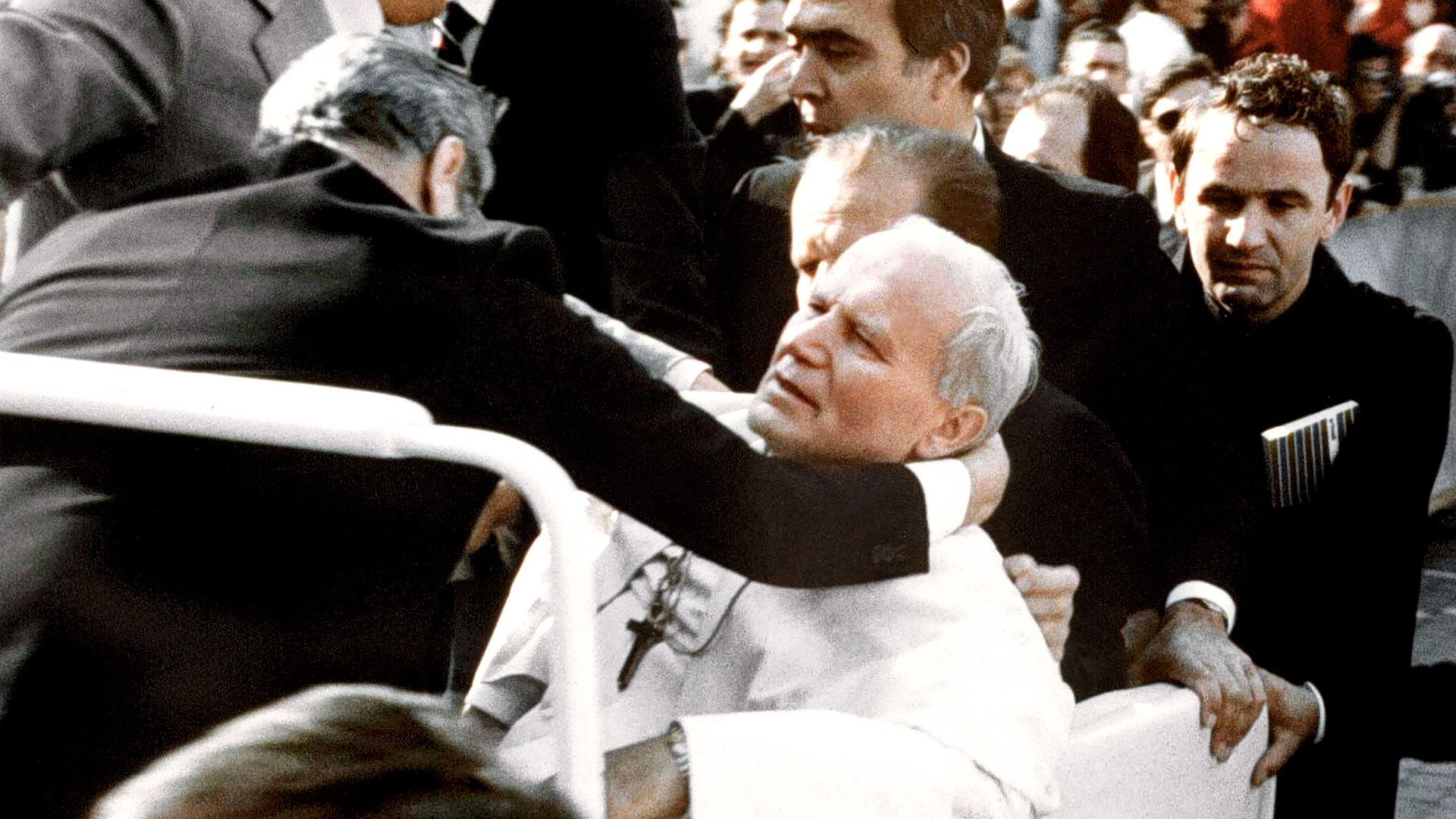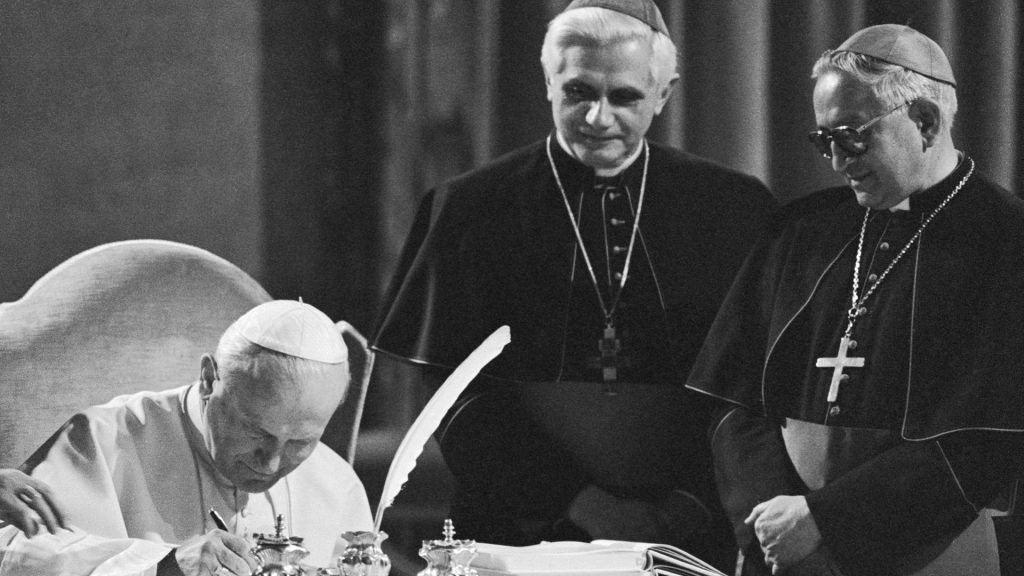
SOPHIA DEBOICK on what might have happened if the attempt on Pope John Paul II’s life had been successful
The two bullets fired by his would-be assassin perforated Pope John Paul II’s colon and small intestine, and he lost nearly three-quarters of his blood as he was rushed to hospital. Yet, they narrowly missed his mesenteric artery and abdominal aorta, allowing surgeons, over the course of five hours, to save the pontiff’s life.
But what if events in St Peter’s Square on that spring day 40 years ago had gone differently? What if Mehmet Ali Ağca’s shots had, as they so nearly did, proved fatal? How different would things have been if the man otherwise known as Karol Wojtyła had not occupied the papal throne for almost another quarter of a century?
Despite claiming that he “merely gave the tree a good shake”, Wojtyła’s role in the fall of communism was a major one. He had already made his historic first visit to his native Poland, where the handsome ex-actor charmed his countrymen but also issued a challenge: “The future of Poland will depend on how many people are prepared to be non-conformist.”
But if Ağca’s aim had been better, Wojtyła’s galvanising second Polish trip of 1983, which came at the end of the martial law crisis, could not have happened. Neither could his visit of 1987, when he preached to a crowd of a million in Gdansk, home of Solidarity, and prayed at the grave of Jerzy Popiełuszko, the priest murdered by security services in 1984. Without these key interventions in the country where communism fell first, the Cold War could have dragged on beyond 1989.
There is an alternative scenario, however. The hitman was apparently aided by the communist Bulgarian government, and a Soviet plot was suspected. The situation was already febrile in strike-hit Poland in May 1981 and if the Polish people, as well as other Slavs who saw Wojtyła as ‘their’ Pope, believed the KGB had killed him, their anger could have resulted in the Cold War coming to a swift but bloody end.
More insularly, since his predecessor had died after only 33 days in office, Wojtyła’s death would have meant the destabilising prospect of three papal elections in as many years. Two Italian cardinals, Giuseppe Siri and Giovanni Benelli, had been among the frontrunners in the two 1978 conclaves – either could have made it third time lucky in a 1981 election.

Siri, who had been a rival to John XXIII in the 1958 conclave, later became the focus of a ‘true Pope’ conspiracy among an ultra-right seeking to discredit the reforms of Vatican II. As Pope, Siri could have provided encouragement to extreme conservativism in the Church.
The liberal Benelli, meanwhile, despite being a relatively spritely 60 years old in 1981, died of a sudden heart attack the next year. The loss of four popes in quick succession would have been catastrophic.
Alternatively, rising star Joseph Ratzinger could have ascended to the papal throne 24 years early. As one of the youngest cardinals, he would have offered the hope of a long papacy. His later reputation as ‘God’s rottweiler’ as the traditionalist head of the former Inquisition may have been transposed into a papacy that lurched further to the right than even the absolutist, conservative Wojtyła’s did, or he himself managed as an ailing octogenarian.
As another Central European, Ratzinger had a dog in the fight against communism just like Wojtyła, and probably would have made it a greater priority than the two Italians. But while his Stasi file described him as “one of the fiercest opponents of communism”, his lack of tarmac-kissing, crowd-pleasing charisma meant that he was unlikely to have been able to follow Wojtyła’s act as an agenda-setting anti-communist crusader.
But, perhaps most powerfully, if Wojtyła’s life had ended that day, he would not have met Ağca in prison 18 months later, the startling images of the pair sitting hunched in intense conversation beneath the barred cell windows a lesson in forgiveness and reconciliation for a turbulent decade of a violent century.
What do you think? Have your say on this and more by emailing letters@theneweuropean.co.uk









